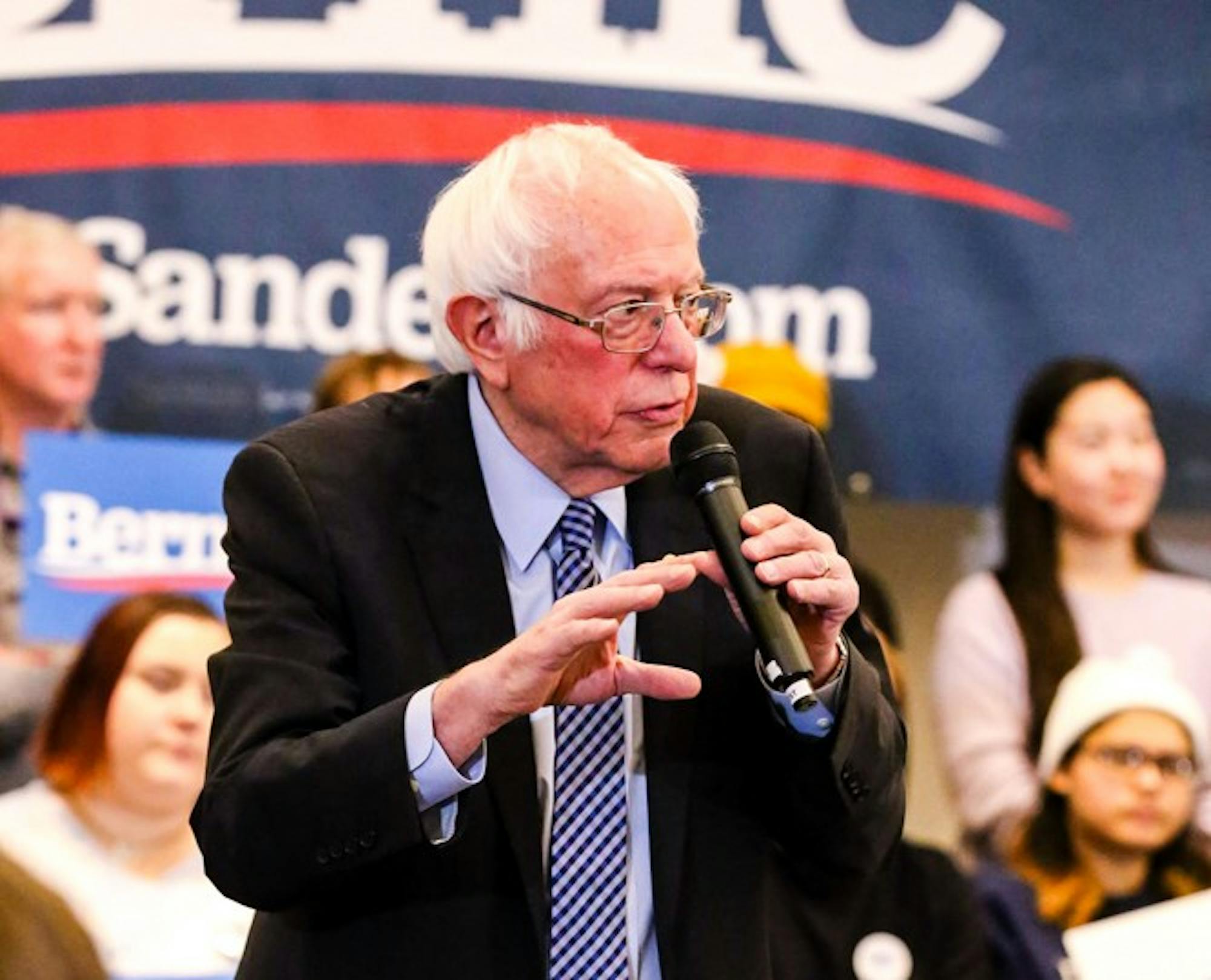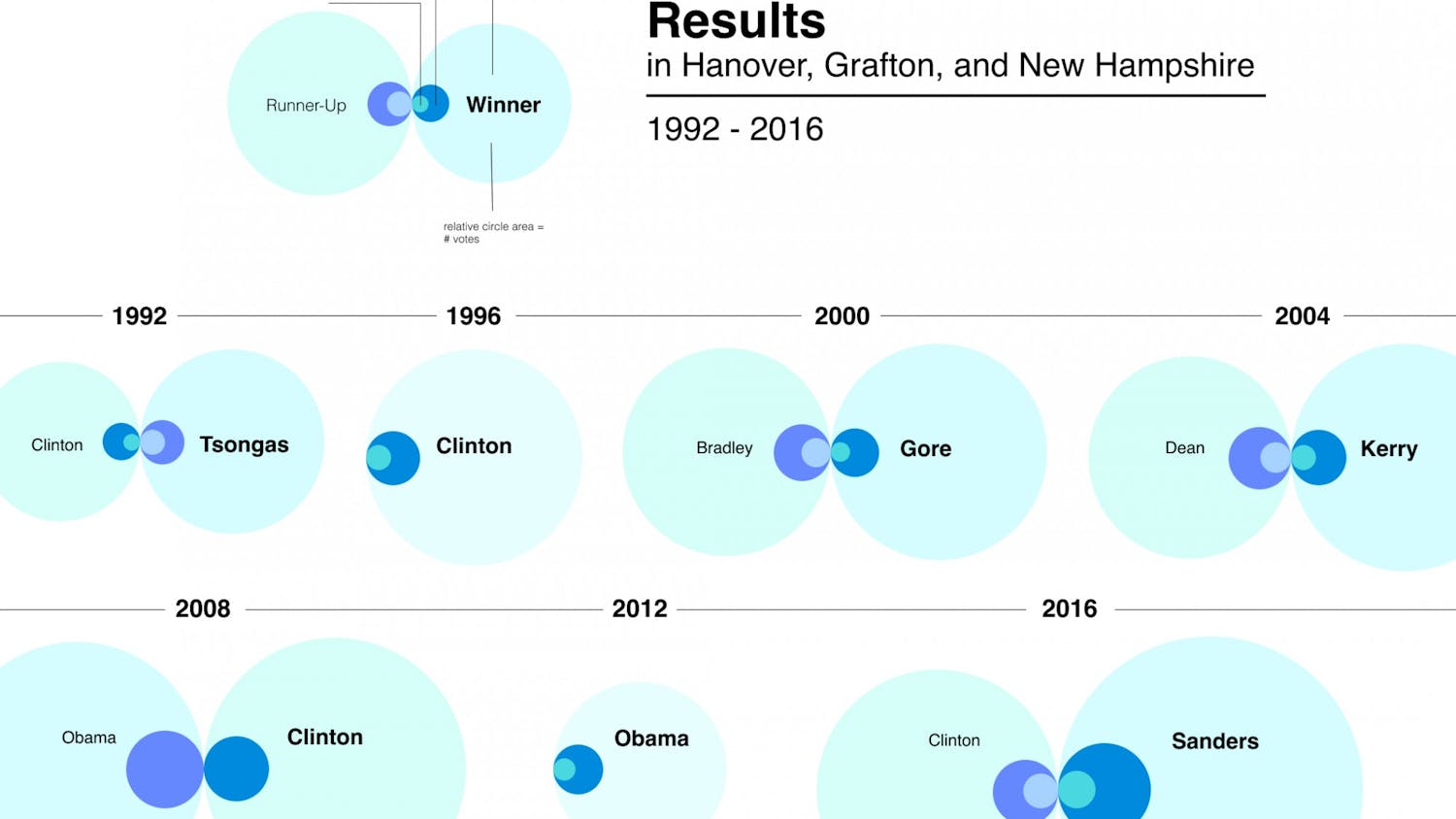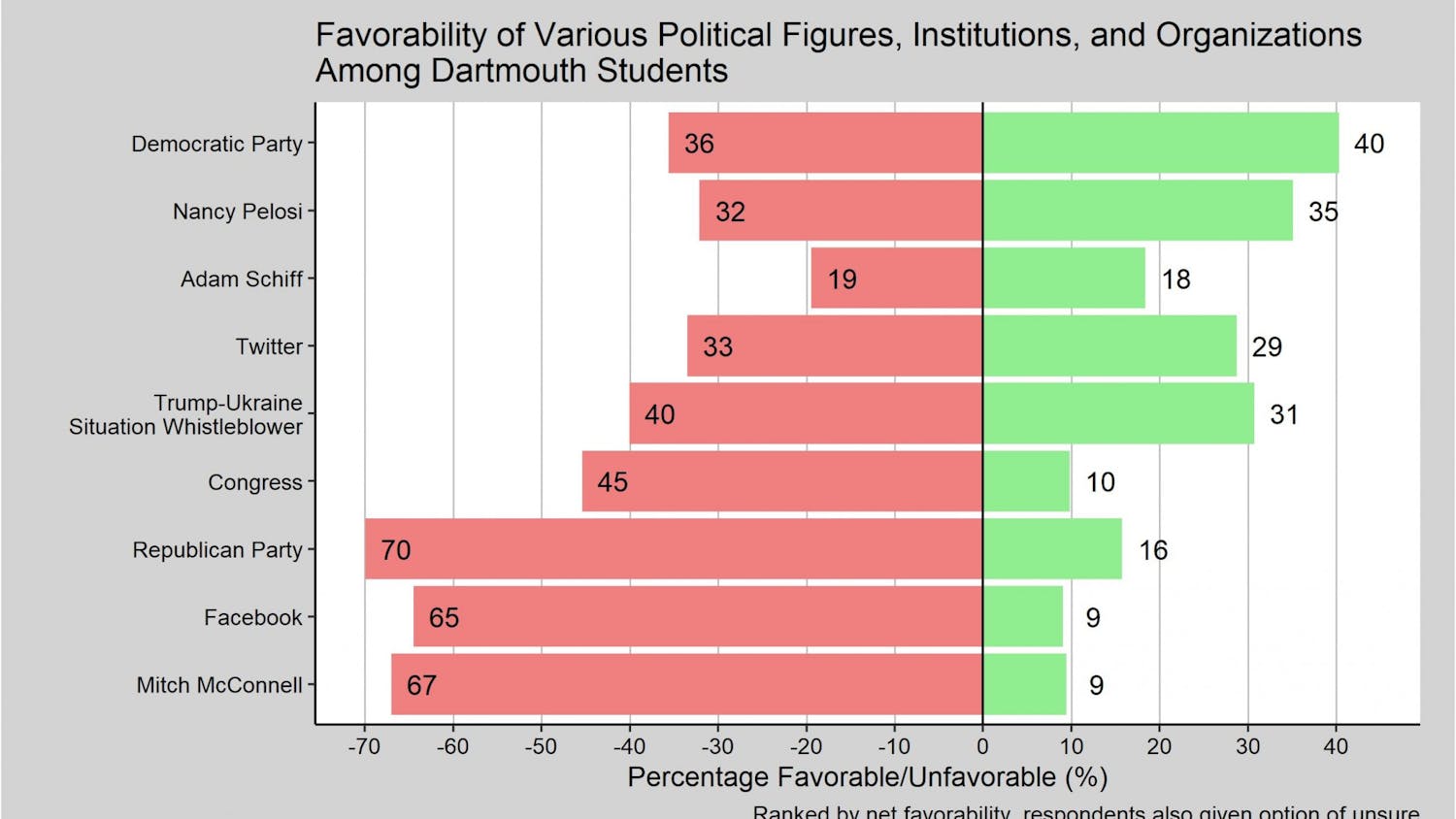This past weekend, campus buzzed with energy not only from Winter Carnival festivities, but also because of several visits from presidential candidates leading up to the New Hampshire primary. Former South Bend, IN mayor Pete Buttigieg and Sen. Amy Klobuchar (D-MN) spoke at separate events in the Hopkins Center for the Arts on Saturday, while entrepreneur Andrew Yang and Sen. Bernie Sanders (I-VT) held events on Sunday at the Top and the Hop and the Hanover Inn, respectively.
Climate change was a major topic for Buttigieg, Klobuchar and Sanders, with all three in agreement that the government needs to shift the economy away from fossil fuels. Buttigieg said that his administration would create a carbon tax rebate system to shift the economy to a carbon neutral system, while Sanders pointed to the Green New Deal as a means to shift the economy away from fossil fuels “as fast as possible.”
“The dividend part is important so we’re not sucking money out of the economy,” Buttigieg said when discussing the merits of a carbon tax. “However, these price signals across the economy have to change, or else we’ll be pushing the economy on a string,”
Klobuchar emphasized the importance of putting a price on carbon, adding that she would push for the United States to re-enter the Paris Agreement, bring back the Obama administration’s Clean Power Plan and gas mileage standards, and create “sweeping legislation to put a price on carbon and energy efficiency.”
Sanders and Buttigieg also said that international diplomacy would be an important factor with regards to dealing with climate change — both agreed that the United States must be a world leader in convincing other countries to work together on climate change.
“We can do all the right things tomorrow, and if the rest of the world is not, we’ll remain in very bad shape,” Sanders said. “My job as President of the United States would be to speak to the countries all over the world and make the case that has to be made that we should pool our resources to fight our common enemy: climate change.”
All of the candidates emphasized “electability” and their ability to defeat President Donald Trump.
Claiming to have both the traits needed to be electable as well as governing ability, Buttigieg said that voters did not need to choose between “governing well” and winning an election in voting for him. Buttigieg also emphasized his electability by saying that the eventual nominee should focused on winning the voters Trump successfully courted in 2016.
“I would argue that this would be a good moment for us to have a nominee who actually comes from the kind of industrial and Midwestern community that he targeted so effectively and then turned his back on,” Buttigieg said.
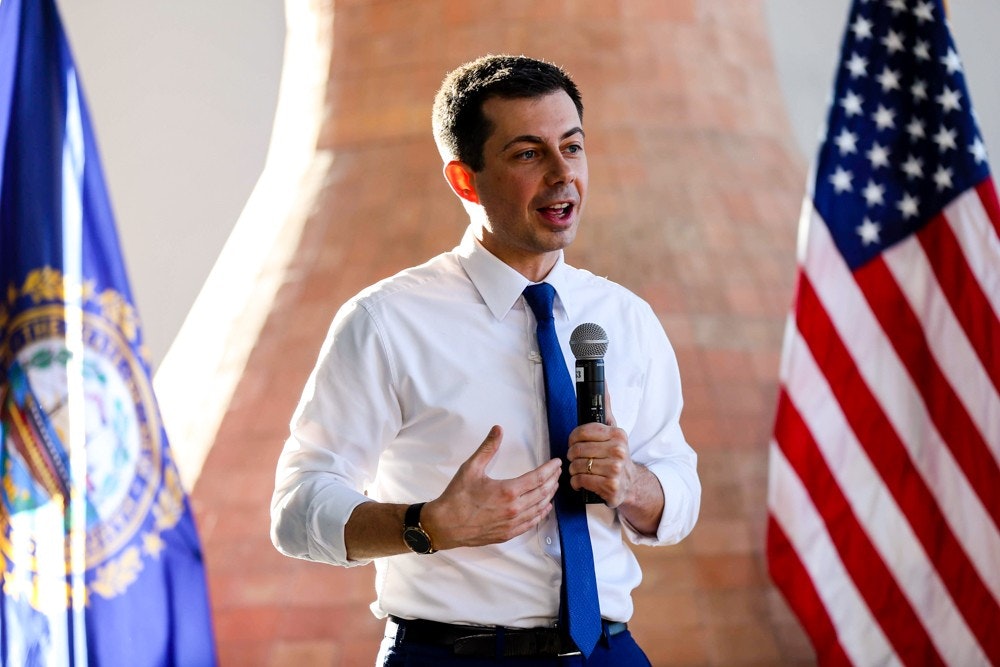
Former South Bend, IN mayor Pete Buttigieg
In making her electability argument, Klobuchar emphasized her Midwestern roots. Citing the recent impeachment of Trump, she called on voters to be “the jurors in this election,” adding that this election would be a “decency check” on the presidency. Klobuchar also cited conversations with several voters, her opposition to socialism and ability to win in a battleground state as examples of her bipartisan appeal, noting that “the heart of America is so much bigger than just the guy in the White House.”
In contrast, Sanders emphasized the grassroots nature of his campaign as proof of his ability to defeat Trump. He added that his campaign has received more individual donations than any candidate in US history. Sanders cited his ability to build a coalition that Trump and “the one percent” could not divide.
“He’s trying to divide us, so we are going to bring people together,” Sanders said. “Black and white and Latino and Native American and Asian American, gay and straight — we are going to rally around an agenda that works for all of us, not just the one percent.”
Focusing less on coalition-building and more on data, Yang focused on the economy when selling his pitch to Hanover voters.
“The numbers tell a clear story as to why Donald Trump won — we eliminated four million manufacturing jobs,” Yang said when discussing the states that Trump won in 2016.
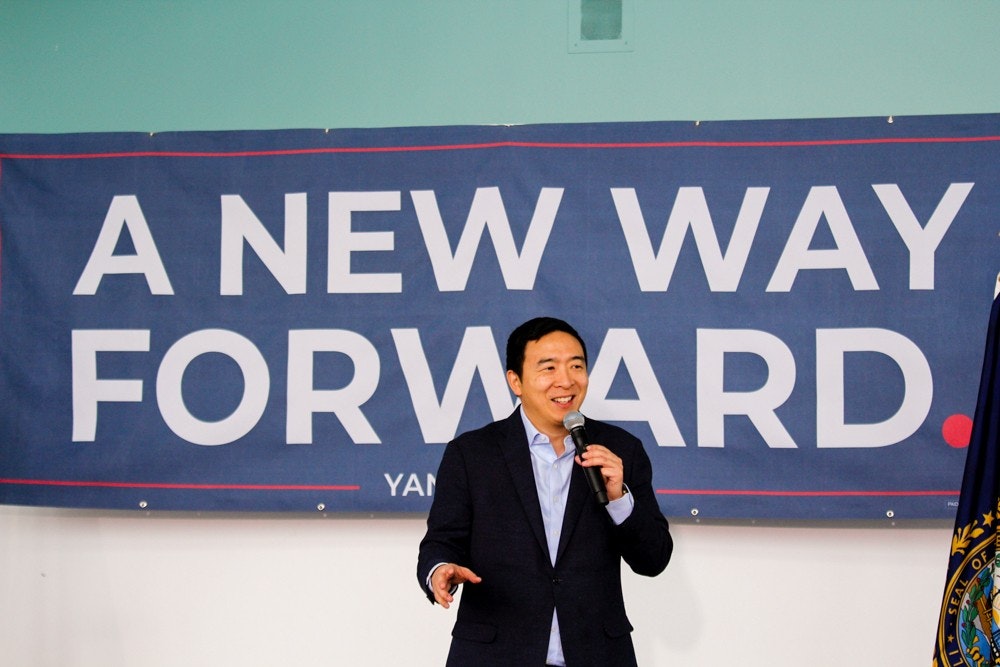
Entrepreneur Andrew Yang
Yang also drew attention to more systemic issues that led to the rise of Trump, noting rising rates of depression and suicide. He said that he hopes that his candidacy can help people realize the economy should work to improve the lives of Americans.
“We don’t exist to serve the economy, the economy exists to serve us,” Yang said.
Speaking in a college town, each candidate emphasized their approach to education policy.
Buttigieg spoke about the importance of public education broadly.
“We are for our teachers and supporting public education, with a secretary of education who actually believes in public education,” Buttigieg said.
Sanders emphasized the importance of making higher education available to all Americans, regardless of their ability to pay, and promoted his proposal to cancel all outstanding student loan debt. Defending his policies against criticism, Sanders called out the expectations about higher education in America.
“It is not a radical idea to say that everybody in America who has the ability and the desire should be able to get a higher education college or trade school regardless of the income of his or her family,” Sanders said. “That is not a radical proposition.”
Klobuchar presented a differing view from Sanders, hoping to expand existing programs, noting that America’s education system should work with its economy. One of her proposals included expanding the eligibility of Pell Grant recipients. Advocating for a expansion of higher education but pushing against the promises of Sanders, Klobuchar emphasized the importance of investing in primary education and making one and two-year degrees free. She added that it was important to recognize that “there are many paths to success in this country” outside of higher education.
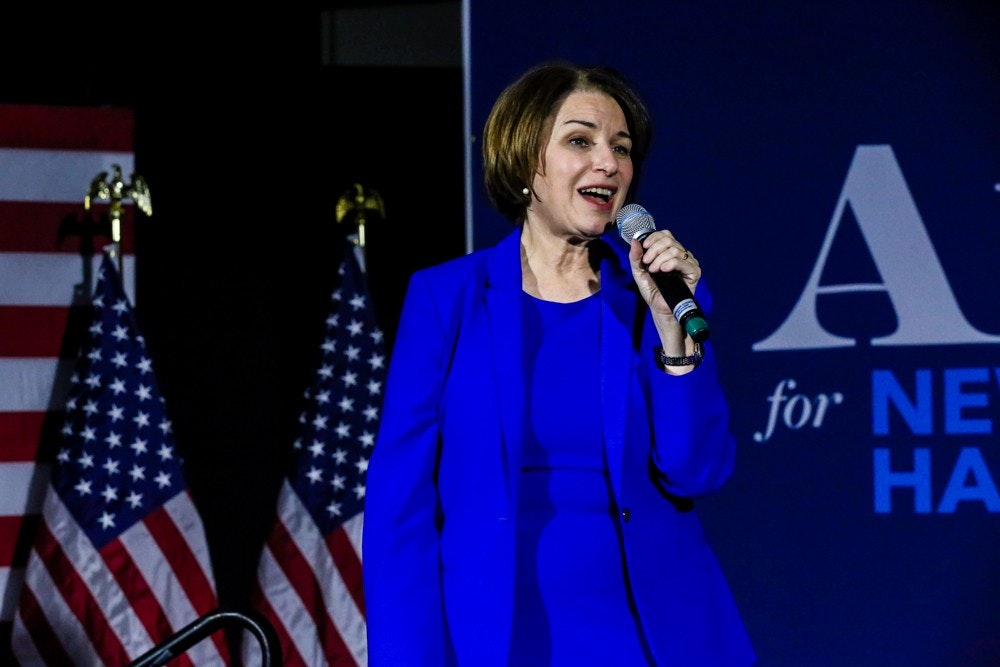
Sen. Amy Klobuchar (D-MN)
Yang also stressed the importance of a new approach to education that differed from the pipeline to corporate jobs that typically exists on elite college campuses.
“If we have all of our intellectual capital heading to Wall Street or Big Tech or consulting, then we are just going to end up making the machine work better, but that machine isn’t working for many families here in New Hampshire and across the country,” Yang said.
Yang spoke directly to Dartmouth students, adding that he wants to create paths for them to promote progress in the country. He also expressed skepticism regarding educational retraining programs for technical education, instead citing a need for redistributive programs such as his universal basic income proposal.
Candidates differed sharply on their pitches about why they are the most qualified to be president.
Buttigieg said that his time as a mayor of a small town helped him understand the issues Americans are going through. Buttigieg also noted that the Democratic Party has historically won the presidency with candidates who were “new to Washington.”
“Washington can’t even hear us feel the experiences that we are living through,” Buttigieg said. “That’s why I’m here to carry your voices to Washington to bring solutions.”
Sanders also attempted to portray himself as an outsider by referring to the people who donated for him, and distanced himself from other candidates who have accepted donations from large companies. Sanders said that most of his donors are teachers and from working families.
“If you think that people getting money from the CEOs of drug companies are going to attack all the greed and corruption of the pharmaceutical industry, you’re mistaken,” Sanders said. “Our campaign is a campaign of the working families of this country; it is by the working families, it is for the working families.”
Yang described Washington, D.C. as a “town of followers not leaders” and that he is hoping to lead by bringing new voices and ideas from other areas of the country.
“Rather than drain the swamp, I want to distribute it,” Yang said, citing his plan to spread bureaucratic work across the country.
Yang said that he planned to set term limits for both Congress and justices, as well as for public funding of elections. He also noted the need to “override the lobbyists that have completely taken over our government, and drew attention to his business experience with Venture for America as an example of how he could lead the country.
Meanwhile, Klobuchar cited her experience with Trump’s impeachment and on Capitol Hill to demonstrate how she would beat Trump in the general election.
The candidates’ rallies attracted many students and residents from Hanover and other nearby towns. Some rallies — such as those for Buttigieg and Sanders — were over capacity and had to turn people away.
Rohan Menezes ’23, a Sanders volunteer, said that the crowd size exceeded expectations.
“There were well over 500 people there,” Menezes said. “The main room was full, the overflow room was full — we even had people waiting outside.”
Student attendance differed significantly from event to event. The Buttigieg and Yang events consisted of mostly Dartmouth students, while the Klobuchar event had a higher proportion of community members attending. Menezes said that the Sanders rally had a roughly even split between students and other community members.

